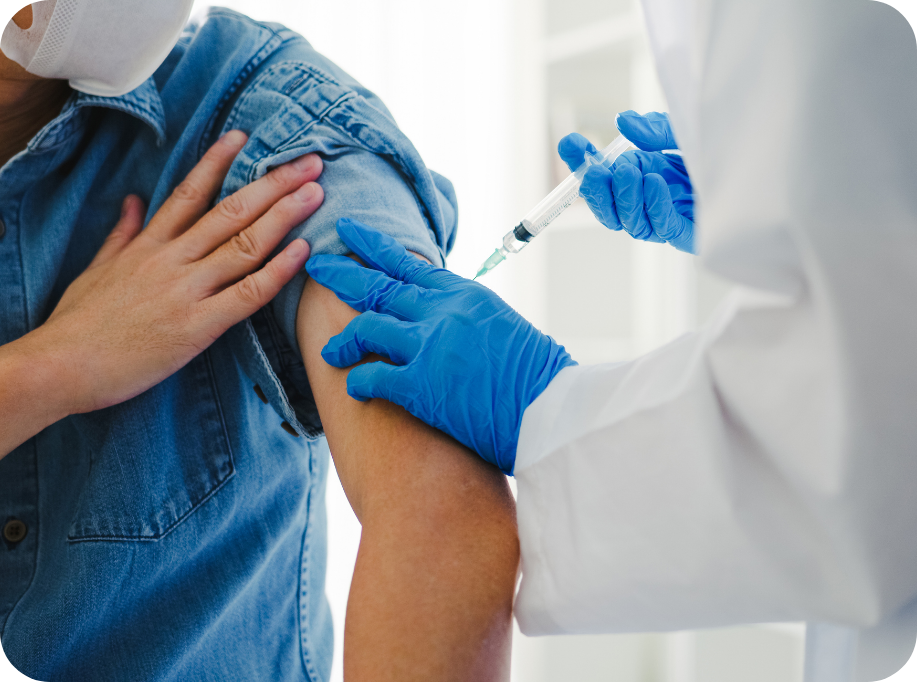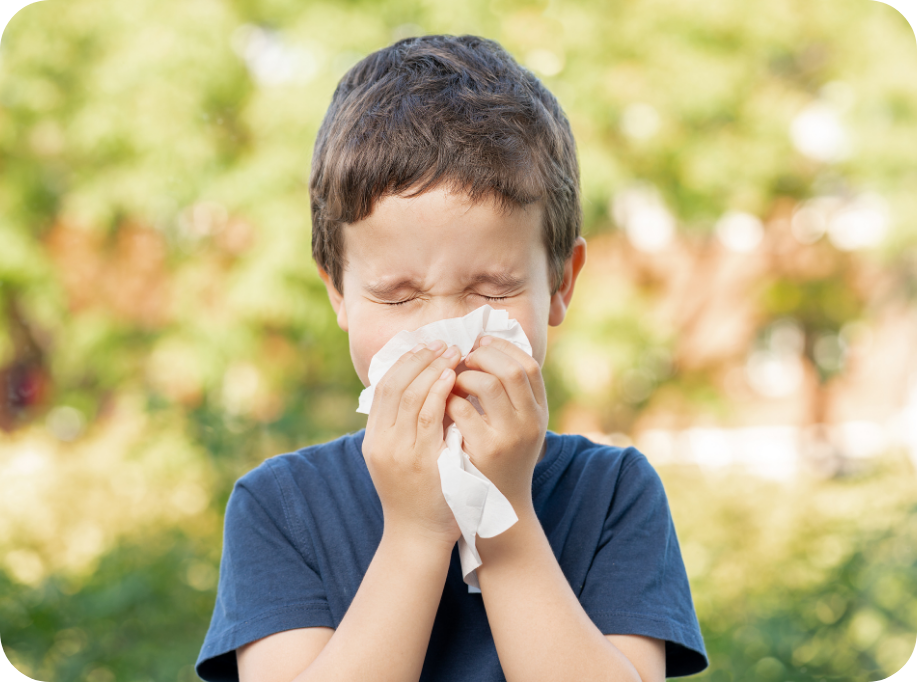Allergy Immunotherapy (Allergy Shots) in NJ & NY
Allergen immunotherapy, commonly known as allergy shots, can make a huge difference for those experiencing allergy symptoms. With an 85-90% improvement rate, allergen immunotherapy in New Jersey and New York can offer both temporary and long-term relief for those grappling with the daily impact of allergies.


What is Allergen Immunotherapy?
Allergy shots in NJ & NY, also known as allergen immunotherapy, are a long-term treatment that decreases symptoms for patients with seasonal allergies (hay fever), perennial allergic rhinoconjunctivitis (an allergy to dust mites, mold spores, pet dander, cockroach), allergic asthma, eczema, and stinging insect allergy. Allergy shots result in “desensitization” to allergens. Patients can then have increased exposure to their allergic triggers without developing troublesome symptoms.
How It Works
The protocol followed in our practice includes a build-up phase and a maintenance phase.

Who Do We Consider for Allergy Shots in NJ and NY?
- Patients with severe year-round or seasonal allergies
- Patients who have unavoidable exposure to their allergic triggers
- Patients who have complications from their allergies – such as asthma, recurrent sinus infections, recurrent ear infections and eczema
- Patients who do not respond to appropriate medications
- Patients who do not tolerate allergy medications
- Patients who do not want to be on medications long term given medications are not a cure but are rather just “masking the symptoms
What Types of Allergies Can We Treat with Allergy Shots in NJ and NY?
Allergen Immunotherapy FAQs
How do allergy shots improve allergy symptoms?
Allergy shots improve symptoms via the subcutaneous route triggers a protective or “non-allergic” immune response to the treating allergens. This allows one to develop “tolerance” or an “immunity” to the allergen.
What are the risks of receiving allergy shots?
The only medical risk associated with allergy shots is an allergic reaction. The most common reaction is localized redness, pain and itchiness at the site of the injection. Systemic allergic reactions can also occur, but they are very rare. It is generally believed to occur in 1 per 100,000 injections. In addition, the majority of allergic reactions occur in the first 20 minutes, which is why we have patients wait for 20 minutes. As an extra safety precaution, we insist that all patients who receive allergy shots in our office carry Benadryl and an Epipen for at least two hours after receiving their injections.
Do allergy shots work?
85 – 90% of patients improve with allergy shots. Different patients respond to different doses. The textbook answer is it takes 6 – 9 months to achieve a clinical improvement. Some patients notice an improvement within a few weeks of starting allergy shots. Other patients might not notice a significant improvement until maintenance doses are achieved. Some patients need to have their maintenance doses increased above the typical dose to achieve the desired benefit.
Can everyone receive allergy shots?
No. There are certain patients that cannot receive allergy shots:
- Patients who are less than five years old
- Patients who are on beta blockers
- Patients who have unstable cardiac disease

